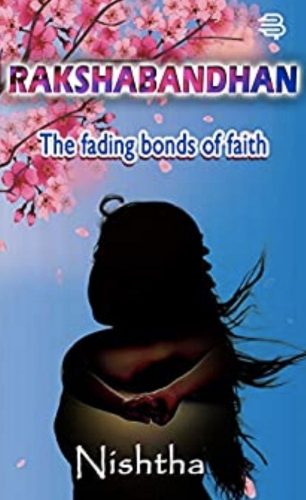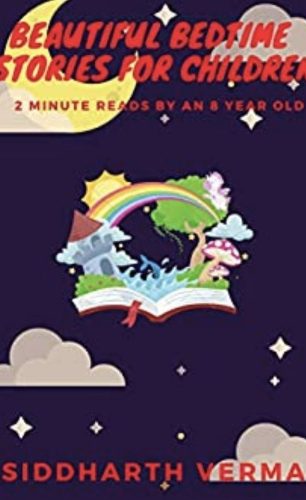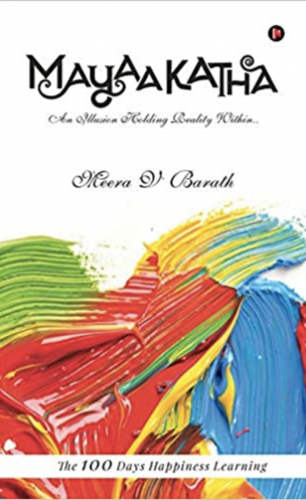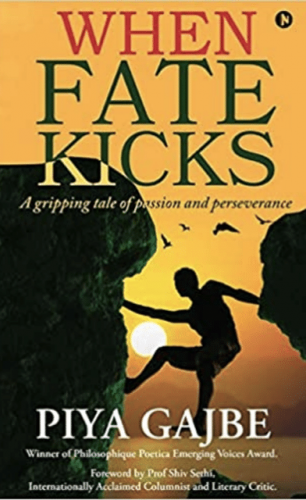#1000 Words Tales Black Lives Matter July Entries
#1000 Words Tales July Entries
Winning Entry by Preethi Warriar
Of Love And Hypocrisy.
She gazed at the computer screen in disbelief, unable to fathom what she had just stumbled upon.
“It’s high time this racial discrimination stops, my heart bleeds for the victim. Black, brown, how does it matter, I pray for the victim’s soul.”
ABC, the famous Bollywood actor had tweeted his solidarity to a racial abuse casualty, an incident that had caused a huge furore worldwide.
She scoffed. With a sarcastic smile playing on her lips, she browsed ahead, least concerned about ABC’s elaboration.
“What’s so funny?” her husband handed her tea.
“ABC has expressed his emotions about that racist incident in the US. Remember I told you he was my classmate at high school? He once refused to share the bench with me. I would infect him with my dark colour, he had jested.” she was still smiling, albeit sadly.
“Hey, cheer up.” Her husband tried to turn the situation jovial, “He was young, and obviously an idiot. Forget it. I can’t bear to see the beautiful mother to be upset. ”
But how could she forget? ABC had been a teenager back then, old enough to realize that such comments hurt. And it hadn’t been an isolated incident , ABC and his group of fair complexioned good looking elite, made sure she was the butt of their many racist jokes. She had an umbrella for the afternoon sun, to which ABC had once cited, she didn’t need one as her skin couldn’t tan any further.
‘Kaali’ was what he and his comrades often preferred calling her.
And here he was now, condemning racial discrimination on social media. Popular amongst many, with average acting skills but light skin and good looks, he had made his way to the top.
Much as she tried pushing those thoughts away, somehow she found herself disturbed the whole day. Those jibes, those demonic laughs at the cost of her skin colour, those memories, were too deep-rooted to get rid of.
She had to do something, she had to unmask ABC off the benign garb he donned over his snobbish self. And of course, who else, but social media to help.
So she diplomatically replied to his tweet.
“Dear ABC, wonder if you recall me from high school. For years, you fondly addressed me ‘Kaali’, remember? Glad that you now sympathize with racial discrimination, never expected it from someone who thought my dark skin colour was contagious.”
The impact her little response created, was shocking. Many of her ex classmates had resonated with her, many other strangers had expressed their disdain. His act of mock compassion had turned into a field day for twitter users. There was hardly much against her, it was his tweet that had turned into a meme fest. Turned out he endorsed a fairness cream as well, the public roasted him for being fake, his tweet was being openly called a sham.
So much happened over two days, Mr. ABC finally sent out another message on social media, tagging her. He mentioned he did remember her, and deeply regretted what had happened back then. He in fact apologised for his childish behaviour and called the whole episode unfortunate.
She was genuinely surprised, but content. At least he had been honest and taken on her accusations head on. She was hardly interested in the adulations and praises she was garnering, his acknowledgement and apology had been enough. Some had admired his decency to accept his wrongdoing and she on her part had forgiven him. It was a huge load off her mind and somehow, she was ready to put the whole childhood incident behind, forever.
When she thought about it now, it somehow turned out, he hadn’t been the only one. She had been a brilliant student and her teachers’ pet. But when it came to dance or fashion shows, she often found herself side-lined, the other beautiful girls were placed above her. In school skits, there were certain roles she was deemed fit for, many others were out of her scope.
The relatives didn’t make it easy either. Almost every product, from curd, to tomatoes, to synthetic creams were smeared on her face, but to no avail. But they all made sure they constantly let her realize, she had a problem, a big one at that.
The marriage arena had been worse, qualities like good education. individuality or moral values often took a back seat when it came to skin colour. The matrimony websites had a colour filter, she was often rejected as early as the profile viewing stage.
But then, none of it mattered now. She had studied well, she was independent and she had made her parents proud. As for marriage, her husband had been her colleague, they had worked together in a team, grown to love and respect each other, and now graduated to beginning a family together.
She was about to retire to bed one night, when her mother-in-law offered her a glass of saffron milk.
“It’s the fourth month now, so I thought I could toss in some saffron for you and the baby.” The good lady smiled.
“I don’t like the taste Ma.” She was confused.
“Just gulp it down, it’ll do you good, your baby will be fair complexioned.” The mother-in-law reasoned.
Offended she was, but she let it go. Her day at work had been hectic and she was in no mood to argue with the old matriarch. But no more lightening therapies and no more saffron from tomorrow, she swore.
Once in the confines of her bedroom, she talked about the incident to her husband, about how uneasy she felt when it came to someone so close, discussing her unborn child’s skin colour.
“Let it go dear, Ma is old. And then, no harm in trying, right? Who’s to tell, what if we turn lucky and get blessed with a fair baby?” his expression gave away his actual point of view.
She sighed and switched off the lights.
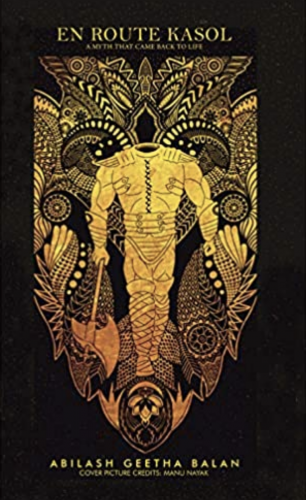
Entry by Debaprasad Mukherjee
Why….How….
By: Debaprasad Mukherjee
Why didn’t you? How dare you? These two questions keep pestering me of late. Well, I’m no Greta Thunberg; I’m a much lesser mortal fighting for a local cause. I am Norma Minz, a faceless tribal girl from Village Mohra, Chhattisgarh. Yet limelight was thrust upon me for a brief period, and you may remember my nondescript face on the news channel, or maybe in some corner of your newspaper if you care to rewind your memory say a couple of months back.
Can’t do it still? Let me help. Remember the great exodus following lockdown? I constituted a small molecule of the great mass of thousands. I escaped the indifference and disdain of my employer and the locals while working for a cotton mill at Ahmedabad. I was not a full scale spinner, only an apprentice at the mill in place of my debilitated father who had lost a leg while in job. The employer was generous enough to grant me a job to compensate. It suited them. They had to pay me some 2000 rupees lesser than my father’s monthly ten, they got some extra works done by me at no cost. Yet I was happy. Who would offer a job to an eighth-fail at that pay!
It was only four months since I started working at Ahmedabad leaving my mother at village to fend for herself. Still we were better off than many in our village. We could send some amount, however paltry, home. I never boasted of my looks. With a dark tan and ordinary face I had nothing to write home about. Yet I thought I developed a true friendship with Makran, a local young milk vendor, equally dark and dumb-faced like me. It was he who arranged a second-hand bicycle for me. It was he who took me to the other side of the great wall that was built within a few days in front of the shanties that served as residences for hundreds of labourers like us. He said it was to obliterate the view of our poverty-stricken structures from a famed world figure.
The other side of the wall was catchy and gorgeous with its depictions. That was not the time I asked why didn’t you renovate our houses (we call it so) on the occasion? I rather understood. It was best to present the better face of the society to outsiders. Don’t we dress well for special occasions?
I asked my first questions during the extended phase of lockdown. Why didn’t you pay us our dues during a pandemic? How dare you leave your workforce at god’s mercy? Why didn’t you think you’d require us again one day? Questions kept storming my devastated mind thereafter. As the desperate me, a helpless girl in her early twenties, ventured a journey of 1600 kilometre on bicycle with handicapped, old father as pillion, I asked- how dare you leave thousands of citizens, your voters, at their own despair? Why didn’t you think there’ll be elections again? How dare you leave your own men to die the death of destitute? Why didn’t you consider us to be a part population that matters?
More questions during the next two fourteen-day phases; of my blistered journey home, and my quarantine period at the outskirts of our village respectively. I became photogenic all of a sudden. The spectacle of a young girl carrying her father all along on a bicycle made a good story. The newshounds came, made their stories, and left! Why didn’t you offer even a bottle of water to quench my thirst? How dare you, the political groups, flock around me at my village to bag me as a party candidate and lure me with goodies when you did sweet nothing at the time of our peril? Why didn’t you think of our jeopardy before you exhibited your face-saving kindness by offering us alms of some food grains and a semblance of an income in some poorly carried out government scheme?
In came June 6th and in poured the reports on TV. The citizens of USA struck the road with vengeance against police in general and their country head in particular, the same one we hid our poverty from, in protest over the custodial death of a certain George Floyd and other black prisoners. They roared, ‘Black lives matter’ to bring the administration to their knees. Black lives matter, and so does every life. Why didn’t you, the intellectuals, the polity, the social groups, the human right activists, the students hit those responsible for our plight with all your might? We also had a common colour; proletarian. Don’t our lives matter? We are the hoi polloi that you see in every walk of your life; at home, at motor garages, at factories, at shops, at farms- everywhere. We are your day to day shock absorbers. Life will come to a standstill without us. Yet our lives don’t matter! Not that you don’t take to the roads on occasions. Remember your efforts against passing a certain bill before the lockdown?
Then came an evening. It couldn’t be blacker than that. A group of vultures, or should I call them hyenas, pounced on me while I was returning alone along a grove. They bit me, nailed me, and mutilated my feminine being to the very core! How dare you do that to a girl whom you could not save from hunger? God is merciful. He took my life away in order to save my grace.
Underneath the grave it is only one colour; the unabashed white of skeleton, albeit within a black blanket. It’s peaceful over here. You’ll no more hear of me. But the questions remain. Why didn’t you? How dare you? One day I’ll ask God, if we have one at all.
Entry by Vikram Munigala
Diamonds and Diamonds
On a June summer and a late evening, the flock of wanna be change-makers gathered around the JNU open auditorium for discussion on the debate about equality, and identity.
It was more than a year after the vicious oppression events that happened against the outspoken. The lack of clutching responsible people has not only blurred the freedom of speech but also the sense of togetherness in the campus. And today’s debate is supposed to help give back a safe voice to the community.
Jelani, with the long curls, on the first day at the campus, with an elevated view forth-away from the center node, was vacuumed among the flock and deeply rooted in the debate.
=======
Jelani Abara, born to Indian and African parents, he is a student from Stellenbosch University, currently on a change to Delhi University. Being black and with multicultural parents, has adapted to the diamond forming pressure from being discriminated and alienated in the whole life.
=======
Jelani, from the forth-away in the open air and step bricks, is still curious about Gandhi’s land and has a hope to see what it promises. To the flock as the heated arguments in the debate provided a shield to the sleepy cold breeze, Jelani was kinned to the amiable yet valiant arguments made by Riaan.
Riaan pointed out that, in this Gandhi’s land where Secularism and Democracy are still loosely defined – has a foundational issue while defining equality and identity without color and caste.
He further argued that,
Gandhi in his early life in South Africa, compared the Natives of Africa to savages, troublesome, very dirty and raw kafirs – while trying to woo the Europeans that the Indians are their Aryan brothers unlike Africans – it was this stigma that surprises how people of this magnitude identify a human without tagging them based on race, color, and natives.
As the debate concluded and the open-air turned null to the late-night breeze, Riaan noticed and approached Jelani, offering him a chai-walk.
=======
It was early 1920, on the banks of river Krishna is the Kollur mines. As the dust settles down over the sunset, the miners wearing dothi return to their huts that are made from sleek straws to get their daily food portions. These miners and their families struggle to basic needs and were paid with food instead of money. Although these miners made the Kollur mine the largest and most productive diamond mine on the Indian subcontinent while producing large and famous diamonds like the Koh-i-Noor, the blue hope diamond, the white Regent, the Dresden Green and more, the Golconda Sultanate and the upper class enjoyed the immunity and boon.
Radha, daughter of a diamond trader but more widely known among the miners and their families for her softhearted nature, often visited the open clay mines with her dad. She always saw those miners as people who suffer from inequality and discrimination.
Radha was Riaan’s grandmother, often fancied him with stories from her childhood. But for Riaan, stories about how she helped those miners for eg. while with food sour Ganji, with slim buttermilk and two rain seasoned mango pickle and the stories that spoke about the racial discrimination or the caste issues the existed/exist in the society and how the diamond forming pressure that these miners and their families bare to entertain the fancy diamonds of the few were interesting.
These stories have molded Riaan’s core values and principles towards being more transparent and seeing the humans and identity them without any color or caste. It was Radha, who was also supporting Riaan for who he was.
=====
With Riaan sharing his grandmother’s stories, they continue to talk and walk past the pack of chai-wala’s and settled down for an early morning cheese Maggie and a kadak chai.
Jelani, you know, I was supposed to meet you tomorrow, and I’m supposed to help you to get things around. It’s great that we already met – said Riaan.
=====
It was 1908, a large portion of the Indian community had gathered at Hamidha mosque in Newtown, Johannesburg, South Africa. Amare abara, Jelani’s grandfather was asked to drop a large three-legged iron cauldron to the mosque by the trader where he works.
As part of the protest against the government of the Transvaal on the Asiatic Bill or the Black Act which was aiming at Indians and Chinese. Gandhi, considering the interests of the Indian community, he requested them to provide their registration certificates and burn them in protest.
On that day, a total of 2000 certificates were burned in that cauldron.
Amare, knowing that Gandhi considers Indians to be more superior than local natives, watching these certificates burn from the corner of the hall, was lost in the thought – ” in the fight against white and non-white if we are fighting for equality, why only 2000 certificates or 13000 Indians in Transvaal, what about scores of people like him, who are still struggling to be identified and included in the fight”.
=======
Jelani being a little hesitant to the warm gesture he received from Riaan started to open up. He started to share his experiences on how he loses the fight even without being included. Further, adding to the stories from his grandfather and mentioned how he related to Riaan’s point about Gandhi’s comments on Africans.
Jelani with the time he spent with Riaan understood about India and even with all the ill-defined social systems and struggle, why India is still known for its unity in diversity, a place for the variety of ideologies, and the solace. Riaan could see Jelani for what he was, and all the struggle he had been to.
As they continued the walk, it was already the next morning and they bumped into Riaan’s friends where Jelani was invited to join the Pride Parade.
At Jantar Mantar, as Riaan and Jelani walk with pride along with the pack, along the rain of colorful bubbles that resembles the colorful light from the diamonds, they kissed to the togetherness that they needed in each other.
- Vikram Munigala
Entry by Anamika Bhattacharya
The Aroma from Darkness
Looking into her basket, she was very happy. Susan’s basket was full of bread, hot fluffy and brown. She knew her basket would be empty within no time. Every time she went to the market with her bread basket, people would just cover her from all around and buy the loaves.
She couldn’t thank enough this young black boy who never told her of the source of her wonderful breads. Yet, she would be delighted of the whiff of freshness and lovely aroma that came from them. However, this question loomed on her head all the time that when she would find out the chef(s) who cooked these.
Susan’s curiosity was growing day by day and the intensity was so high that one day she decided to stealthily follow Martin (the young boy who gave her the breads). Martin would always come with his packets at 8 in the morning. He would be over by 8.30 AM. She decided to stay put and follow till he finished distributing and returned.
Susan began following Martin after he had finished his distributions. Marin first went through the broad lanes and then the lanes went narrow. Both sides had tall buildings made of bricks and mosses growing on them. She too came from a ghetto, but the stink and dirt on the roadside was getting nauseating for her as she moved ahead. Susan had to take care that Martin doesn’t realize she was following him. Ultimately, Susan reached a spot where Martin stopped outside an old dilapidated building. He looked around and quickly opened a creaky wooden door and went inside bolting it as quickly as he opened.
Susan wasn’t able to see a thing inside but, she didn’t give up. She had to know who the bread maker or makers were. She went around the house and found a small window opening, like those that you usually come across a prison. The window had no glass but a wire mesh on it and the fragrant aroma of the bread was come out of it.
Susan tried peeking in, but couldn’t as there was barely any light. This was frustrating for her for she wasn’t usually the kind of person who would give up. After trying to find if there were other outlets, she finally was about to go when she heard soothing whistles from inside. She bent her body on the ground and listened intently. Some people were whistling and humming a tune unfamiliar yet really melodious!
Susan didn’t realize when someone had come from at the back and was glaring down at her. She got up scared, her white and pink face full with mud. A fat old, pot-bellied white man was standing over her, looking curious and angry.
“What work do you have here woman,” screamed the man.
“Nnnn… nothing Sir”, stammered Susan.
“Get yourself out of here right at this moment, I say”, shouted the old man.
Susan gathered herself somehow and ran away from the place, not looking back at all. It was after she reached the big road that she stopped to take a breath and resume from her incessant panting. She was totally baffled and didn’t know how to react. However, she was adamant to find out. That night she went out and reached the house where Martin had gone in and the old man had chided her. She was adamant to find out what was the ingredient behind this superb quality of bread she was selling.
Again, she bent low to peek inside the smallish outlet and unravel the secret. A faint yellow light was all she could see inside and some voices singing an old African tune. Susan knew of the music because of the old aunts in her ghetto sang the tune all along while they worked- washing clothes, making food and cleaning their surroundings. Susan was angry, scared and anxious to know about the source, she had no clue of.
Suddenly, as if God had heard her, the door of the house was heard creaking. Susan got up quickly and hid behind the wall, looking at the door. The old, white, huge man had come of the house holding a cigar in his mouth. He looked around and walked ahead. The door was left ajar. Susan took gulp of her fear inside and got in. A long climb of stone stairs barely lit with a bulb as all she could see. Feeling scared, she climbed down a few.
What Susan saw left her agape. On the basement, some 20 black men were snuggled inside and sleeping. She ran climbing the stairs and somehow managed to come out of the house, not getting noticed by that old devil of a man. She kept running until she reached home. What Susan had envisaged kept her up the entire night. She couldn’t imagine people could be in more pain than what she experienced in her life and around her.
Every human being had the right to be happy no matter the caste, colour or creed. The scene around that bread factory wasn’t something she ever thought could exist. Next day Susan didn’t collect her bread. Instead she visited the nearby police station, narrated the police officers of what she had envisaged.
The police raided the house that afternoon and rescued some 30 African slaves who were bought by one Mr. Timber and kept inside the gloomy and dingy house. He made them work endlessly, supplying bread to all shops around the town. These men earned nothing in return as they were bought in a fair as bonded labours, traded from the far away land of Tanzania.
Extremely lean-bodied and rickety edifice, these men looked nothing but living skeletons. For all the hard work they did, Mr. Timber was actually making them slog endlessly, earning millions and not even bothering to give them proper meals. The men were rescued and given a barrack to live ad earn a living by the local mayor.
Entry by Tejaswini Rao
Black Pearl
Rajaiah reached his small home on a midweek afternoon. It was a hot humid day, his cotton turban (pagidi) was drenched from his sweat. His three children are playing outside beneath the neem tree. Singing and gallant, unaware about the worldly troubles and untouchability. Their age is as such, full of joyful times and happy go lucky stories.
Ranamma came running from inside. Rushing towards Rajaiah she said ” It can happen in a day, be around the corner and vigilant”
Rajaiah unwittingly nodded his head, although he had been in this moment earlier, strange anxiety overwhelmed him. Closing the small wooden gate that serves more as a boundary marker than as a gate, Ranamma shouted again and concluded she would alert her friends as well and left.
************
Rajaiah a tall, well-built mid-thirties person, who passed matriculation but relied largely on farming for generations. With two beautiful daughters and a son anticipating another soon to be born, his farming life largely depends on the vicissitudes of mother nature accordingly.
Midwife Ranamma brought the baby girl wrapped in white cotton linen to Rajaiah, with utter dismay in her eyes and a weighty pity. At that moment, it is unclear if it is towards the newborn or Rajaiah. Full Moon just emerged out of the pith dark sky., and there this baby girl blinking her eyes and giving the divine smile as if to lit up her new home. Looking at the baby girl with wide bright eyes and dark skin akin to the vast night sky, Rajaiah is disarrayed totally and felt a heavy burden all at once.
************
It’s been 14years since Kali was born. People by now believed that she was named after her color. Color in the eyes of people so dark and untouchable. Disowned by her siblings, as they were scared to see her in the beginning and eventually avoided her. With his modest income, Rajaiah managed to give good education to his firstborn. Kali has become reticent over time, carrying heavy dis-heartedness that came from an unfulfilled longing for people., especially from immediate family. Rajiah overlooked the issues initially and later became oblivious.
Maybe as if to learn to have a blind eye for all the despise surrounding her, she made friends with the trees and animals. As if she can’t see any more darkness in the people’s hearts, she got night blindness adding to the agony of her father. Who by now is worried and hopeless about her future.
Kali is slim, well built with big dark eyes. Her skin color resembles that of the darkest of dark clouds formed during the season of Aashada. People whispered within that she is a curse from the gods, a demon has taken a human form is what they propagated. Eventually, she was treated as a bad omen – ill-treated and ridiculed for who she is.
Kali although so young but hurt hearing the people’s words left the place immediately to find solace with her tree friends in another corner. She hugged the trees nonchalant and thought to her self., “You want dark hair to make one beautiful and young, Darkest of dark gods to shower boons on one’s pitiful life, they will pray for dark clouds that will give rains for their farming needs….Yet black is untouchable and unacceptable for them..’’. The very thought gave her shivers down her spine. With this thought water welled up in her eyes. Yet again, She felt orphaned in this big wide world.
************
Kali is left behind in the darkness deep inside the forest after her father left her behind with a false promise of returning. The accumulated darkness around her and the animal screams gave her heebie-jeebies. Despondent, she tucked herself onto her knees in a slumped posture with a heavy heart. That night she couldn’t shed a tear.
After a long time, she felt thirsty. She couldn’t see anything around her in that darkness. At a distance, she found some blurred lights and pursued them. Soon enough she realized they are the fireflies, that are trying to add some light as a duty in this dark world. Once she neared them, they started moving in a different direction as if to take her along a destined path.
With hundreds of unanswered questions circling her, she followed…
******
There lived a girl
born into a family,
dark as pitch-black,
akin to the vast night sky.
A pearl of hope
Lost within the folds.
*******
Disheartened Rajiah, swollen, came back home. Started weeping with some gibberish.
‘When my motherland who had fed me is black, the land that I plow for my survival is a Black soil, the cow that I pray every day is soot Black just as the illusion that covered my heart all this while. When my very existence is dependent on these black lives. Why am I not able to see my Kali the same??’ … thinking so he had sunken to the lowest of his spirits and never to raise back soon.
************
Years passed by, several changes occurred. Drought continued for years, kicking many people out of the village in search of other livelihoods. Rajiah now all alone in his dilapidated house, now and then hearing about the stories of ‘Red hood’ brotherhood who are revolting against the monarchy and capitalism supporting the destitute and poor. They have succeeded in bringing underground borewells for lift irrigation in the village.
That night, Kali came along the Redhood brotherhood. Like a lioness with her pride, she is regal with her power and mellow in her heart towards the destitute. To start a newly dug borewell. She was given aarti and welcomed with a garland. Rajiah recognized her immediately and ran towards her.
Kaali for the first time in years hugged Rajiah tightly and cried. He announced to the village ‘She is ‘Kaali’ – but not a dark cursed one that you ill-treated her earlier., but KaaLi the one who kills evil within people and establishes justice. After all, she is named after the goddess Kaalimaa. The darkest of black goddesses with the purest heart’.

